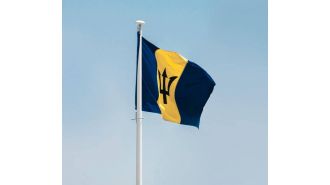The Pinkster festival, a historic celebration among Black communities in New York, is making a comeback during Juneteenth festivities.
Myra Young Armstead believes that the fear of enslaved Black people plotting to rebel was a major factor in the end of the largest Black celebration in early Colonial America.

As the significance of Juneteenth spreads throughout the country, it has also brought attention to other important regional celebrations. One such celebration is Pinkster, which has its origins as a Dutch Pentecostal holiday but was adopted by enslaved Africans in New York and New Jersey in the 1800s. This shift transformed Pinkster into a Black holiday, and its recognition has grown over time.
Traditionally celebrated between late May and early June, Pinkster was a time for enslaved Black individuals to take a break from their work and visit loved ones. It also provided an opportunity to keep alive African traditions away from the watchful eyes of their enslavers. Today, there is a push to make Pinkster a state law in New York, with Assemblymember Brian Cunningham leading the effort. He believes that recognizing Pinkster is essential in highlighting Black joy and honoring the state's history.
There are also individuals like Cheyney McKnight, a member of the New York Historical Society, who are dedicated to keeping the Pinkster tradition alive. McKnight and a group of 11 recreated the route that enslaved Black people would have traveled during the holiday, starting at a farmhouse in Manhattan. In her address to the crowd, McKnight emphasized the importance of family and the agency of those who celebrated Pinkster in the past.
Pinkster has a unique significance in New York's history, as slavery was a regular part of life for over 200 years. According to Andrea Mosterman, a professor of early American history, slavery was a crucial aspect of society during this time. While Pinkster was once the largest Black celebration in early Colonial American history, it was eventually outlawed in 1811 due to fears of a potential uprising by the enslaved population.
But for Lavonda Nahon, an author and public historian, the revival of Pinkster is crucial in preserving the dignity of those who were enslaved. She believes that by celebrating and rediscovering the holiday, we can remove the shame that has been placed upon Black individuals. Similarly, McKnight sees keeping Pinkster alive as a gift to Black New Yorkers, rather than a means of educating others about their history.
As Juneteenth and Pinkster gain more recognition and celebration, it is essential to remember the importance of regional celebrations and the history they hold. In Jersey City, for example, the annual Juneteenth celebration has grown in size and significance, showcasing the continued importance of honoring and celebrating the history of Black individuals in America.









